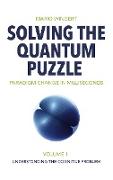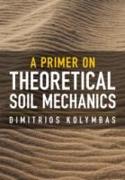- Start
- Solving the Quantum Puzzle. Paradigm Change in Milliseconds
Solving the Quantum Puzzle. Paradigm Change in Milliseconds
Angebote / Angebote:
A new interpretation of quantum physics
For 100 years, most physicists have believed that it is no longer possible to understand the true constitution of nature. This is due to the unresolved wave-particle paradox, the apparent contradiction between wholeness and divisibility - that subtle smile of Nature that seemed so confusing that theoretical physics threw in the towel in despair as early as 1927. This was a direct consequence of the Copenhagen Interpretation, in which Niels Bohr had postulated an insurmountable barrier of cognition (at least for physicists). Since then, the constitution of nature has been regarded as bizarre and weird, the quantum puzzle as unsolvable and the theory as so complicated that it can no longer be understood by mere mortals.
In reality, however, the underlying experiments are of a poignant simplicity that even laymen can easily understand: They show holistic division and branching processes and thus refute the atomic and elementary particle hypothesis, i.e. the hypothesis of indivisibility on which the atomic world view is based. This is precisely the fundamental natural philosophical problem of quantum physics: although the experiment clearly proves that the 2400-year-old Greek idea of the existence of "atoms" - i.e. indivisible particles - cannot apply to nature and reality, we have not yet been able to understand the failure of the atom hypothesis and replace it with a fundamentally new principle of the nature of matter and light. But this is not as difficult as it seems:
Volume 1 introduces the quantum puzzle and identifies the four cognitive problems of quantum physics. They are obviously caused by assumptions that are considered proven, but must nevertheless be false. So we embark on a detective search for clues in the history of ideas in 19th century physics. The investigation reveals, among other things, that the indivisibility hypothesis already failed experimentally justified in the founding days of chemistry, which led Avogadro to the hypothesis of divisible 'atoms', called molecules. The mechanistic interpretation of this divisibility then led to the salvation of the atomic hypothesis, which, however, around 1927 - in quantum physics - suddenly proved to be untenable. No physicist could make sense of it, which led to a hundred-year blockade of thought in theoretical physics: The atom hypothesis had become a paradigm that apparently could no longer be reasonably questioned...
Folgt in ca. 10 Arbeitstagen


